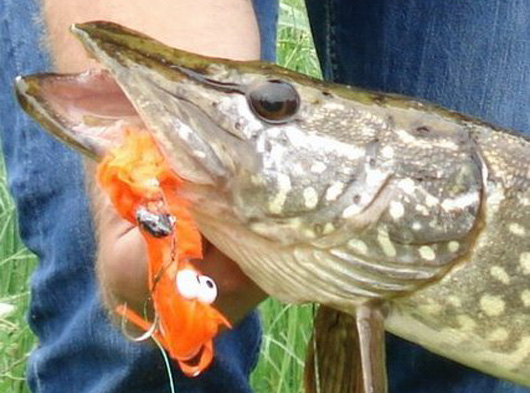A Journey Round My Skull: Arcimboldo Riding a Composite Camel.
Thinking About the MacGuffin
-or-
“In our time — which is a rather stupid time — hunting is not considered a serious matter.” *
This is the picture that planted the seed:
The figurine is described at Super Punch as a Falconer Predator. My first reaction was excitement – what would a Predator fly? How big (Haast’s Eagle size maybe)? I pretty quickly segued into thinking about Predators as hunters – especially with an eye towards fair chase – after all, the movies have been telling us since version 1 that Predators are hunting.
Before I embarrass myself further, a couple points. First, and most important, I realize the Predator is essentially a MacGuffin – horror/thriller subsp.: the nameless, implacable threat element. The alien is there to serve the story; it’s not reasonable to expect a consistent Predator backstory or even consistent behavior from movie to movie. Second, I doubt any of the writers thought very deeply about hunting. My guess is that the original pitch was more like, “It’s The Most Dangerous Game! With an alien! And Arnold and Jesse ‘The Body”! And a mini-gun!” Thus the die was cast – man-hunting became the central narrative element. In spite of these caveats, I just couldn’t leave it be – the more I thought about it, the more interested I became in figuring out what the action really revealed.
So – by way of inquiry, I netflixed Predator, Predator 2, Alien Vs. Predator, went to see Predators in the theater and re-read my copy of Ortega y Gasset’s Meditations on Hunting. Aliens Vs. Predator – Requiem has yet to be viewed – the Design Student tells me it’s the worst of the lot – I may choose to remain blissfully ignorant. Things I noticed:
- Predators are gamehogs. They are supposed to be trophy hunting, but their definition of trophy is pretty inclusive. The first Predator kills two squads (minus one) worth of special forces types, the second kills oodles of drug dealers, a couple cops and most of Gary Busey’s X-Files contingent. AvP throws the whole ‘being armed makes you a target’ thing over the side – being in the wrong place at the wrong time (I’m thinking the whalers in 1904, especially) make you trophy quality.
- Not that there’s any shortage of human game, but the Predator’s approach reminds me a bit of the popular image of late-period buffalo hunters. At least the buffalo hunters took tongues and/or humps for the market – one wonders how big the Predator’s skull room needs to be.
- Preserve hunting is A-OK with the Predators. The pyramid in AvP is closer to a lasertag playground than anything else I can think of. The preserve in Predators is a lot larger, but the way the humans are stocked is guaranteed to disorient them.
The overwhelming feeling that I had watching the movies was that what I was seeing wasn’t hunting. Way too much general slaughter, WAY too much hand to hand combat and a weird confusion of military fighting, honor fighting/dueling and the chase.
I thought about it for a while before I dropped back to my copy of Meditations on Hunting, knowing that Ortega y Gasset thinks hard about what hunting is and isn’t. On page 47 of my edition I found a paragraph that clarified things immensely:
If the hunted is also, on the same occasion, a hunter, this is not hunting: it is combat, a fight in which both parties have the same intention and similar behavior. Fighting is a reciprocal action. The gladiator in the arena did not hunt the panther that had been let out of the cage; he fought with it, because neither found himself in a natural situation. In the course of hunting a fight may occur, as in the case of the wild boar which, when cornered, turns and attacks the hunter; but this fight has only incidental significance within the hunt, and whatever grave consequences may result, it is only an anecdote embroidered on the main tapestry of hunting. If the hunted animal were normally to fight with man, so that the relationship between the two consisted in this fight, we would have a completely different phenomenon. For this reason, bullfighting is not hunting. Neither does the man hunt the bull, nor does the bull, upon attacking, do so with hunting intentions.” *
Bingo! Predators are gladiators/bullfighters. Human skulls are like bull’s ears. Which leads to an obvious question. Every ‘exhibition’ fight I can think of is done for an audience. Are the Predators instrumented and cam-ed for an audience back home? There’s a backstory that could provide some consistency – Hollywood big-wigs, I’ll be waiting for your call.
[other notes]
Slight spoiler – there was no falconer in Predators. I don’t know if it got cut, or if I’m supposed to accept an autonomous reconnaissance drone that happens to mount to a Predator’s shoulder weapon rack as falconry – it ain’t.
One of the key plot points in AvP is nutty. I’m supposed to accept that the Predators leave all their weapons stashed in lasertag pyramid between ‘hunts’? What, they have draconian gun laws back home? (And we’ll ignore all the evidence to the contrary from the first two flicks.)
In the future, Lance Henricksen will be ubiquitous.
Two Books: Birds
Two books came off my nightstand and hit the to-be-shelved pile – both great reads – that are united by their subject matter and [full disclosure] because the authors are friends of mine.
If you don’t have a renewed and deepened appreciation of birds after reading Sy Montomery’s Birdology,you’ve either been thinking pretty hard about birds already or are as numb as a post. We see birds every day and often take them for granted – Sy does an amazing job explaining why we shouldn’t – birds are different. Someone who might get excited about seeing a snake will look at a starling without really seeing it; looking through a starling is less likely after reading Sy’s book. Each chapter in Birdology emphasizes one aspect of difference – Birds Are Dinosaurs (cassowaries)/Are Made of Air (hummingbirds)/etc. I’ve been looking at birds with purpose for over forty years (I attended a lecture by Roger Tory Peterson when I was 10 – a birdwatcher already) but after reading this, I’ll never see them quite the same way again.
There are – believe it or not – more than a few falconry memoirs out there. It’s a tough genre – giants of the sport have written of their experiences, some authors have mixed how-tos with anecdotes and there are, of course, the one-damned-thing-after-another stories. In my reader-side experience, one of the most interesting and productive approaches is to use one’s falconry practice as a candle shining back on the author. Rebecca K. O’Connor takes this approach in Lift, and as far as I’m concerned, does a fantastic job of it. I’m deliberately not going to give much away – if you’re at all interested, you ought to read her words – but Rebecca knits together a narrative of her first season flying her first peregrine (properly, her first tiercel), who she was at that point in her life and vignettes from her (eventful? interesting? read betw the lines here, people) childhood. She doesn’t take the easy way out – Lift confronts some difficult situations and, to her credit – and to the book’s benefit – the childhood stories illuminate but don’t always obviously reinforce what’s happening in the falconry narrative.
Two good books – read ’em.
Supermarket Soccer Streamers
*
*
Dutch Supermarket Albert Heijn is one of the main players in the field of funny orange trumpery. For every 15 euro you spend at the store you receive a ‘Beessie’ mascotte (see photo). But nothing you could do with it till now. Anglers found out it’s very usefull to catch fish. On several websites people are showing their catch with the ‘Beessies’ from the supermarket.




